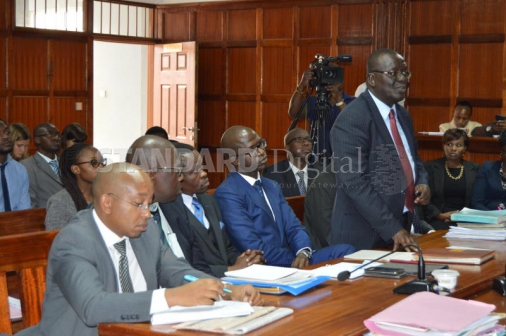×
The Standard e-Paper
Kenya’s Boldest Voice

The country cannot run its election on a purely electronic system, the High Court ruled Friday.
In a 62-page finding, which marked yet another win for the Independent Electoral and Boundaries Commission (IEBC) and a major blow to the National Super Alliance (NASA), a three-judge bench found that an all-electronic system would be a peril to the country in the event it fails or is hacked.